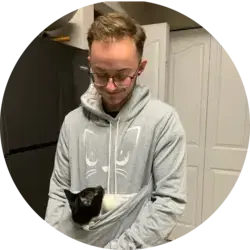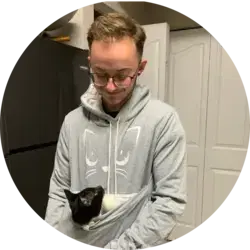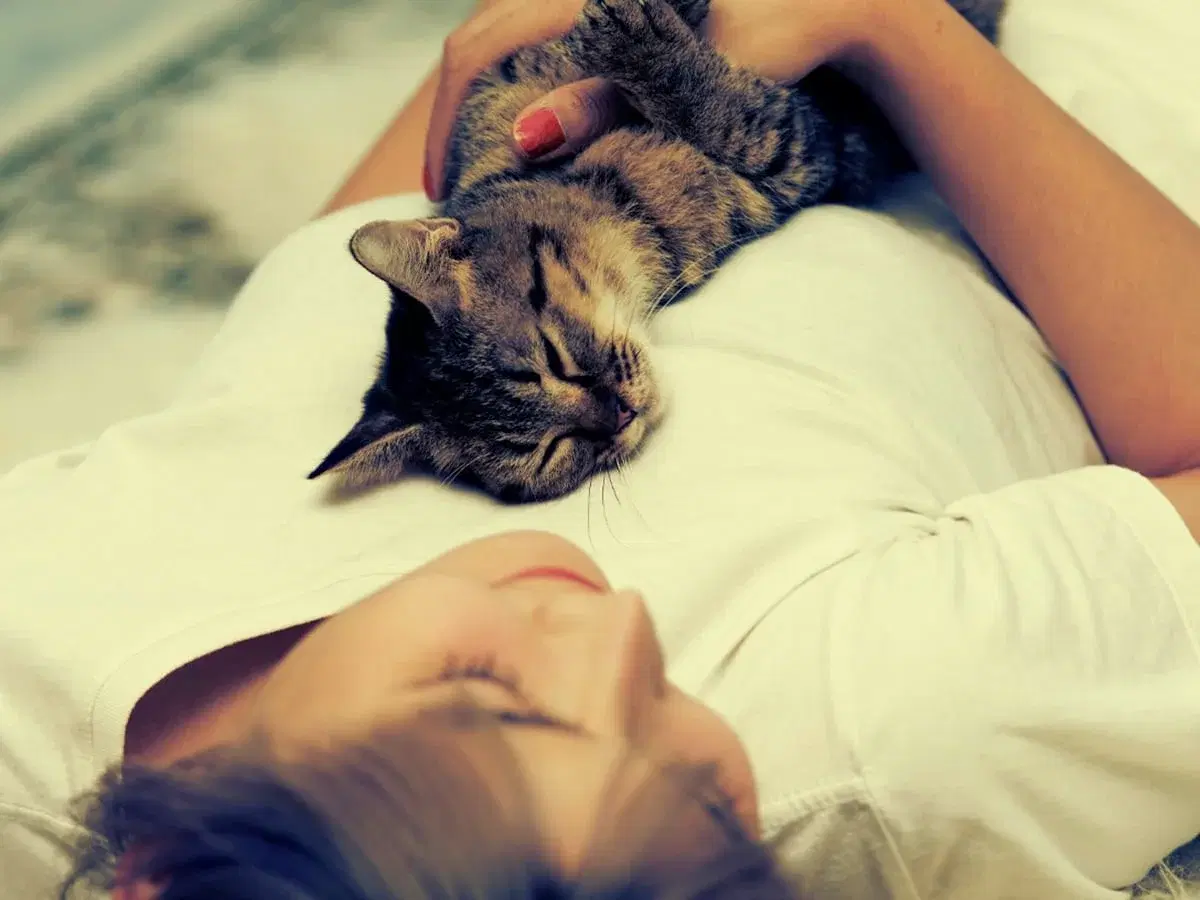If your cat lays on your chest, it’s usually a sign of trust, affection, warmth-seeking, and emotional bonding. Cats are drawn to your body heat and the steady rhythm of your heartbeat, which can feel calming and secure.
While this behavior is typically positive, subtle changes in clinginess or positioning can sometimes signal stress or health concerns.
Below, we break down exactly what this behavior means — and when you might need to pay closer attention.
Top Reasons Your Cat Lays on Your Chest
Bonding and Affection
Cats often lay on the people they trust most. Choosing your chest places them close to your face and scent, reinforcing social bonding. In feline social behavior, physical closeness is a strong sign of attachment.
Warmth
Cats naturally seek heat. Your chest provides steady body warmth, especially during cooler months or at night. Because cats have a slightly higher body temperature than humans (around 101–102.5°F), they’re instinctively drawn to warm resting spots.
Comfort From Your Heartbeat
The rhythmic sound and vibration of your heartbeat can mimic the comforting sensations kittens experience with their mother. Many cats find this soothing, particularly during sleep.
Security and Safety
When a cat lays on your chest, they are placing themselves in a vulnerable position. This signals they feel safe with you. Trust-based behaviors like kneading, purring, or slow blinking often accompany chest-sleeping.
Territory Marking
Cats have scent glands on their face and paws. By resting on you, they subtly mark you as part of their territory. This isn’t possessive in a negative way — it’s social bonding through scent.
Emotional Mirroring
Cats are highly perceptive animals. Some research suggests they can detect changes in human emotion and stress levels. Laying on your chest may be a way your cat regulates their own comfort — or responds to yours.
Is It Ever a Problem?
In most cases, this behavior is completely normal.
However, sudden changes can signal something else:
Increased clinginess paired with lethargy
Unusual vocalization
Appetite changes
Avoidance of usual resting spots
If your cat suddenly becomes more physically attached than usual, a veterinary check can help rule out discomfort, anxiety, or illness.
Why Does My Cat Lay on My Chest and Purr?
Purring while laying on your chest typically indicates contentment. However, cats may also purr when self-soothing or experiencing mild discomfort.
Context matters:
Relaxed body posture = likely happy
Tense body + hiding behavior = worth monitoring
Why Does My Cat Only Lay on My Chest (and Not Others)?
Cats form primary attachment bonds. If your cat consistently chooses you, it likely reflects:
Feeding association
Stronger scent familiarity
Routine-based bonding
Greater perceived safety
This preference is normal and often flattering.
Should You Stop Your Cat From Laying on Your Chest?
There is no behavioral reason to stop it unless:
You have allergies
It disrupts sleep
Your cat shows signs of separation anxiety
If needed, gently redirect your cat to a nearby blanket or heated bed rather than pushing them away abruptly.
Health Considerations
While chest-laying is usually about affection and warmth, behavioral changes can sometimes relate to underlying health conditions. Cats may become clingier when feeling unwell, anxious, or in pain.
If diagnostic testing or treatment becomes necessary, many pet owners consider pet insurance to help manage the cost of unexpected veterinary care.
Frequently Asked Questions
Do cats lay on your chest to protect you?
No. Cats lay on your chest for warmth, bonding, and security — not protection.
Why does my cat sleep on my chest at night?
Nighttime increases their instinct to seek warmth and safety, and your steady breathing provides comfort.
Is my cat too attached?
Attachment becomes concerning only if paired with distress behaviors when separated.
Final Takeaway
When your cat lays on your chest, it almost always means they trust you.
They’re drawn to:
Your warmth
Your heartbeat
Your scent
Your safety
In short, it’s one of the clearest signs of feline affection and bonding.
If the behavior changes suddenly or seems excessive, consult your veterinarian to rule out medical or anxiety-related causes.
Otherwise — enjoy the purring.

As Spot’s resident cat enthusiast, I am dedicated to researching and sharing information that helps pet owners take the best care of their pets. Pet ownership comes with it’s share of challenges, but my goal is to help make this journey easier.












